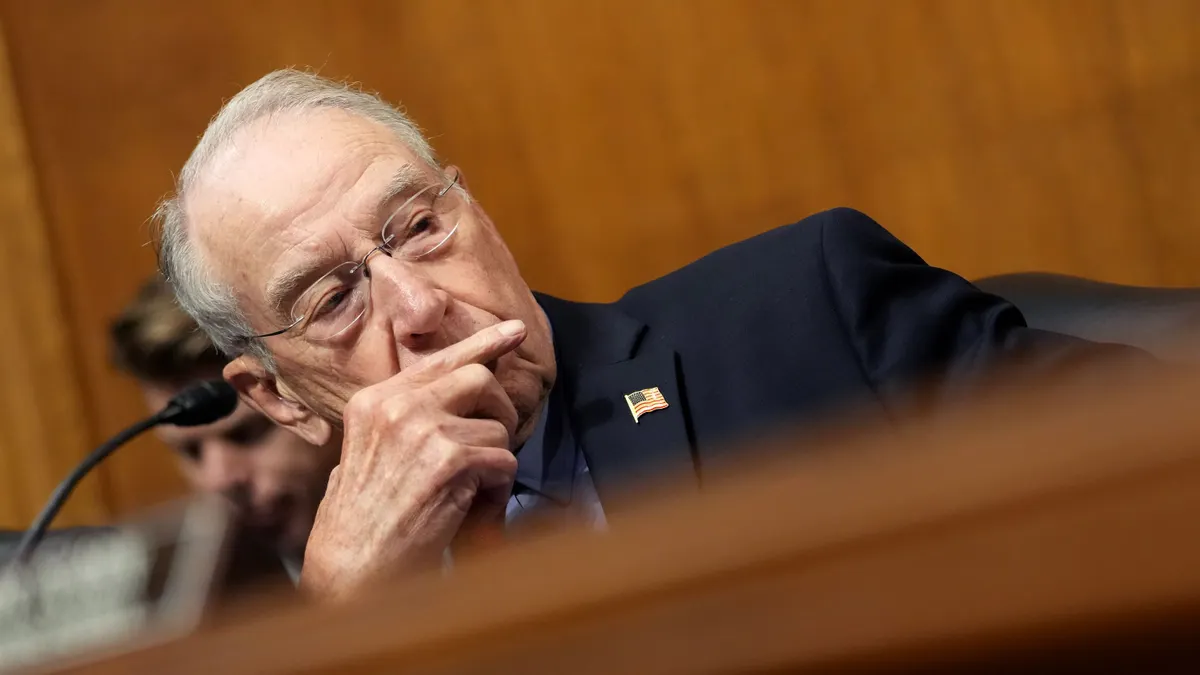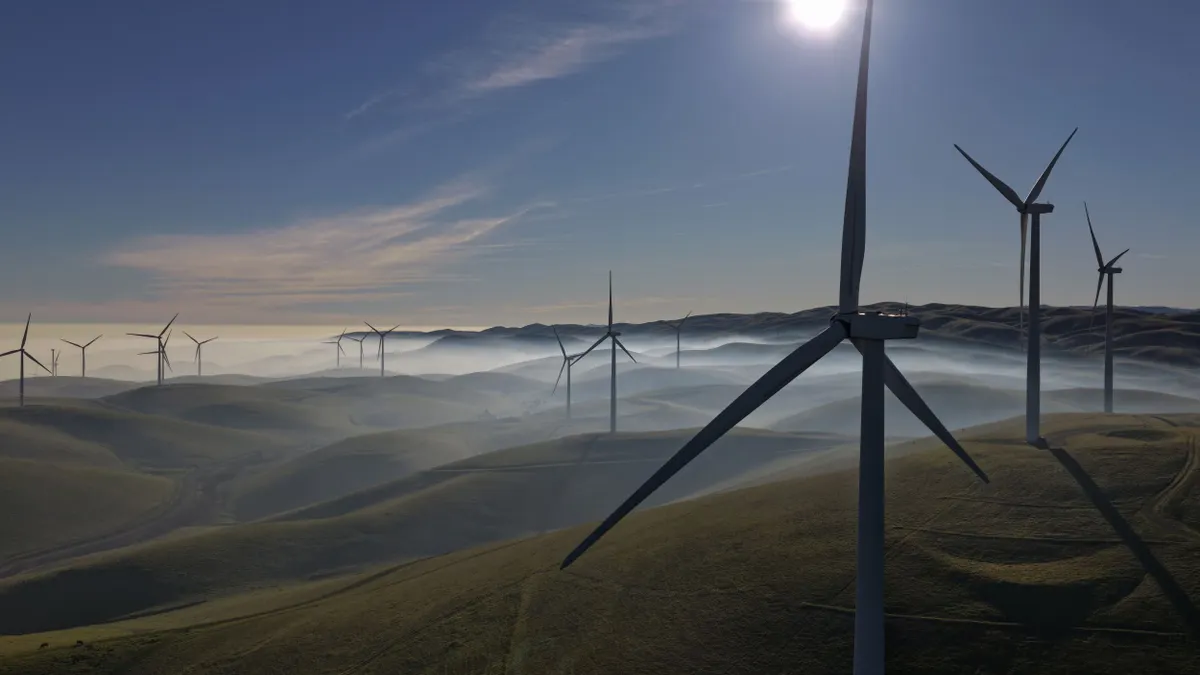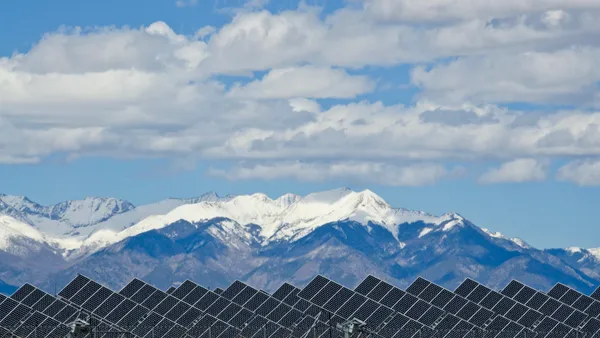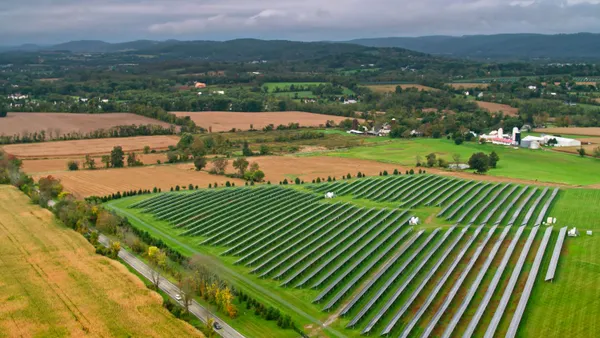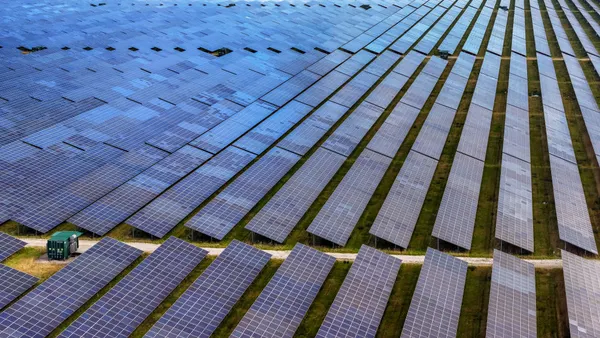Dive Brief:
- Sens. Chuck Grassley, R-Iowa, and John Curtis, R-Utah, have placed holds on three of President Donald Trump’s nominees to the Department of the Treasury, with Grassley saying that he’s doing so to ensure the administration’s upcoming rulemaking regarding wind and solar tax credit phase-outs aligns with congressional intent.
- “During consideration of the One Big Beautiful Bill Act, I worked with my colleagues to provide wind and solar an appropriate glidepath for the orderly phase-out of the tax credits,” Grassley stated in the Congressional Record. “This is a case where both the law and congressional intent are clear.”
- Curtis didn’t comment publicly about why he placed his holds, but someone familiar with the matter told Utility Dive that his reasoning aligned with Grassley’s.
Dive Insight:
The OBBB, signed by Trump on July 4, truncated the length of time that the Inflation Reduction Act’s clean energy investment and production tax credits will be available for wind and solar — attempting to close that window by the end of 2027.
However, Senate negotiations produced a stipulation in the final bill that allows wind and solar projects to qualify after that as long as they commence construction by July 5, 2026.
Trump then issued an executive order July 7 which instructed the Treasury secretary to publish guidance within 45 days “to ensure that policies concerning the ‘beginning of construction’ are not circumvented.”
Ahead of the release of that guidance, Grassley and Curtis have put holds on the nominations of Brian Morrissey, Jr. to be the Treasury Department’s general counsel, Francis Brooke to be an assistant secretary, and Jonathan McKernan to be an undersecretary.
Tim Hagle, a political scientist at the University of Iowa, said Sen. Grassley is trying to thread the needle on renewables in a state “on the red side of purple” that has embraced wind energy. Wind powered 59% of Iowa's net generation in 2023, according to the EIA.
Hagle said placing the hold was Grassley’s way of sending a message, though he pointed out that the senator has complained bitterly in the past about Democrats using the same tactic.
“The idea is, when you do this, it will get a certain amount of attention from the administration," Hagle said. “You kind of hold up things.”
He added that the senator is likely looking to avoid a full-on confrontation with the administration but also prevent a backlash back home that could hurt his party with voters.
“If you give Grassley an opportunity to make his point, and perhaps if you see some response on the part of Treasury to say, ‘Yes, we understand this is a problem,’ … that helps Grassley out, both in terms of the substance, hopefully, but also from the political side of things,” Hagle said.
He added that it was unlikely to signal a larger rift among the GOP on energy policy.
Nick Boeyink, executive director of the Iowa Conservative Energy Forum, said Grassley — who has called himself the ‘father’ of the wind energy production tax credit — “has long been a champion of renewable energy.”
“Renewable energy has been an economic engine in Iowa for more than two decades, helping keep our energy rates below the national average,” Boeyink said. “The Iowa Conservative Energy Forum thanks him for his work to ensure the Department of the Treasury's rulemaking aligns with Congress's original intent for the clean energy tax provisions in the reconciliation bill.”
The Treasury Department did not immediately respond to a request for comment.




